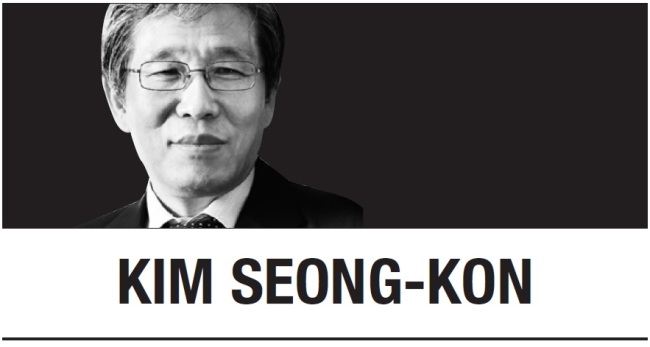Recently, I watched the Korean film “Train to Busan” with great enthusiasm. Initially I thought the movie must be one of those low-budget horror movies, or a cheap imitation of Hollywood zombie movies at best. I know the genre quite well. Therefore, nothing is new or fresh to me when it comes to zombie movies.
To my surprise, however, I found “Train to Busan” refreshing and mesmerizing. Of course, the format was familiar and there had already been a foreign movie about a runaway train full of zombies. Nevertheless, there was much more to the recent Korean zombie thriller. For one, there were few graphic scenes. Even though zombies were attacking and swarming over victims, they were not the main concern of the movie. “Train to Busan” was a thought-provoking film that made viewers brood on their present predicament.
In the movie, South Korea is infected by a deadly virus that turns those infected into zombies. A group of survivors succeed in boarding a KTX train bound for Busan, but the train, too, is soon overrun with zombies. In their isolated compartment, they watch the minister of interior announce in a press conference that it is only a clash between violent demonstrators and the riot police, which is under control now. Once again, neither the government not the press is trustworthy in times of crisis. At Daejeon station, the survivors get off the train as instructed, but they are attacked by soldiers who have turned into zombies. It is symbolic and scary that even soldiers, who are supposed to protect the people, turn against them.
While the train seems to be a fine metaphor for Korea, the compartments serve as a microcosm of our society. Inside the safe compartment, even the survivors turn against one another, selfishly banishing the latecomers from the compartment and shutting the door to prevent other survivors from entering. Men easily lose their humanity in times of crisis and are overcome by their bestiality. Humans with bigotry, prejudice and selfishness are scarier than zombies. Brave men like Seok-woo and Sang-hwa try to overcome ordeals and sacrifice themselves for others if necessary. But there are selfish cowards like Yon-suk and the conductor as well. When the train finally arrives in Busan, the only safe haven in the country, only a child and a pregnant woman are rescued. They are a symbol of our future.
“Train to Busan” reminded me of “Snowpiercer,”an English-language Korean-Czech film based on a French graphic novel, which was also illuminating. In the latter, the train also serves as a microcosm of our society, where the underprivileged in the tail compartment want to revolt against the privileged people in the head compartment near the engine room.
“Snowpiercer” well illustrates the fact that even though there is a revolt, another dictator is likely to replace the former dictator unless you boldly break out of the system. Indeed, Curtis Everett, who initially led the revolt, ends up becoming another tyrant. Even Curtis’ mentor Gilliam turns out to be a secret friend of Minister Wilford, the mastermind of the train. They just use and manipulate people to gain political power and people are easily deceived by them. Both the leaders on the opposite sides warn the passengers against breaking out of the system because their power depends on the people being locked in the system. Only Minsu jumps off the train, breaking free from the system.
“Snowpiercer” reminded me of Yi Mun-yol’s famous short story “Pilon’s Pig.” It is a story of a man who has just completed his mandatory military duty in the Korean Army and has boarded a military train to return home. His compartment is designated for discharged soldiers. Suddenly, a group of wild soldiers, presumably the Marines, breaks into the compartment loudly and begins collecting money by force, threatening and beating up discharged soldiers.
The tyrannical Marines could be a metaphor for ruthless military dictators, whereas the meek discharged soldiers are a symbol of the repressed people of Korea. Suddenly, a demagogue hiding in the crowd instigates the discharged soldiers to fight back and pay back. Then an angry crowd lynches the Marines in blind anger.
Using the military train as a metaphor for our society, Yi brilliantly renders the social milieu of our society during the military dictatorship. He tackles the complex issues of our society: tyranny, injustice, and violence. Yi criticizes the dictatorial Marines to be sure. At the same time, however, Yi also indicts demagogues hiding in the crowd and the brutality of people infuriated by blind hatred under the banner of greater good and justice. Yi poses a question: “Can violence for justice be justified?” He says no, as any great writer would do.
We are like passengers in a train infested by zombies, divided into antagonizing groups and plagued by violence and vengeance. We hope it is not a runaway train to be derailed soon. We want to arrive at our final destination safe and sound.
By Kim Seong-konKim Seong-kon is a professor emeritus of English at Seoul National University and president of the Literature Translation Institute of Korea. He can be reached at sukim@snu.ac.kr. -- Ed.




![[From the Scene] Monks, Buddhists hail return of remains of Buddhas](http://res.heraldm.com/phpwas/restmb_idxmake.php?idx=645&simg=/content/image/2024/04/19/20240419050617_0.jpg&u=20240419175937)

